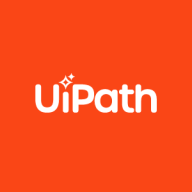

OpenText Functional Testing and UiPath Test Cloud are tools that compete in the automation testing market. UiPath Test Cloud appears to have an advantage due to its seamless integration with CI/CD pipelines and comprehensive features for diverse technologies.
Features: OpenText Functional Testing supports GUI and API testing on various platforms, including legacy systems, with features like Descriptive Programming and AI. It integrates deeply with Oracle and SAP systems, offering ease of object identification. UiPath Test Cloud integrates RPA functions and facilitates automation scripts, excelling in task management and web and mobile technology testing.
Room for Improvement: OpenText faces challenges with compatibility and stability, such as heavy memory usage and frequent crashes. Users desire better integration and more browser support. UiPath requires improvements in file management and defect handling while enhancing third-party tool integration. Flexibility and user adaptability need refinement.
Ease of Deployment and Customer Service: OpenText's on-premises focus limits its cloud flexibility compared to UiPath's versatile deployment options including public and hybrid cloud. OpenText customer support is often slow and reactive, whereas UiPath is recognized for responsive but costly support services.
Pricing and ROI: OpenText is expensive with high licensing demands, though it promises substantial ROI in complex environments. UiPath, while also costly, offers a flexible licensing model that presents better value through comprehensive features for those investing in the full suite. Initial costs vary, significantly impacting affordability between the two.
Automation is done very fast, leading to improvements in the QA process and reducing the time needed for test automation.
The development time using UFT can be cut down into half as compared to coding from scratch.
We can easily achieve a return on investment in one, two, or three years.
Support cases are easily created and attended to promptly, depending on urgency.
After creating a ticket, it takes three to five days for them to acknowledge it and then send it to somebody.
The technical support is rated eight out of ten.
They get into the meeting, understand the problem, and try to provide a solution quickly.
Support should be free, especially for product-related issues.
I would rate UiPath's support neutrally at a five.
Running them in parallel allows you to consume multiple runtime licenses and just execute the tests that don't have conflicting priorities and get through a lot of volume much quicker.
The tool can be installed on all computers used by developers or test automation engineers.
Proper knowledge of Orchestrator and CI/CD processes makes the product truly scalable.
Scaling with UiPath Test Cloud is supported; they have the infrastructure to scale automation to meet business needs.
One of the key stability issues was that Windows would consume memory without releasing it, leading to regression testing crashes.
UiPath Test Suite has matured over the years and is now quite stable.
It is performing better than two to three years back; significant improvements have been made for complete project delivery.
Incorporating behavior-driven development tests would enhance the capabilities of UFT One.
If it could move closer to a no-code or low-code solution, it might dominate the market again.
We frequently encountered stability issues when the browser dependency caused Windows to consume memory without releasing it, leading to crashes during regression testing.
If they could add defect management, it could work independently without needing Jira.
UiPath should introduce compatibility so existing processes in Selenium or other tools can work seamlessly with UiPath Test automation.
I've noticed that adding more users impacts the speed, although nothing stops entirely.
It's cheaper than Tricentis Tosca but more expensive than some others.
The pricing or licensing policy of OpenText is a bit expensive, however, it's one of the best solutions in the market.
There are many open-source tools with no cost, and there are no-code tools that are less expensive than UFT.
Our customers usually pay around 30K to 35K for five licenses, which is priced per year.
The pricing of UiPath tends to be on the higher side, which can restrict smaller companies from adopting it.
UFT supports Oracle, SAP, PeopleSoft, and other non-web applications, making automation feasible.
The object repository is one of the best in the market, allowing creation of a repository useful for all tests.
OpenText UFT One offered valuable features by allowing us to build up libraries to streamline repetitive tasks, making scripting much easier.
What I really like about UiPath Test Suite is its ability to ensure that any changes made do not affect other functionalities.
The most valuable feature of UiPath Test Cloud that I have found is the TestManager dashboard, which integrates with Jira through Planview Tasktop.
The ability of the test suite to automate tests across a wide range of technologies is great since UiPath's background in RPA is specifically designed to automate basically any and all technologies.
| Product | Market Share (%) |
|---|---|
| UiPath Test Cloud | 4.6% |
| OpenText Functional Testing | 8.4% |
| Other | 87.0% |


| Company Size | Count |
|---|---|
| Small Business | 20 |
| Midsize Enterprise | 13 |
| Large Enterprise | 71 |
| Company Size | Count |
|---|---|
| Small Business | 4 |
| Midsize Enterprise | 4 |
| Large Enterprise | 19 |
OpenText Functional Testing provides automated testing with compatibility across technologies, browsers, and platforms. It targets APIs, GUIs, and applications like SAP and Oracle for efficient test automation, emphasizing usability and integration with tools such as Jenkins and ALM.
OpenText Functional Testing offers wide-ranging automation capabilities for functional and regression testing, API testing, and automation across web, desktop, and mainframe applications. It supports script recording and object identification, appealing to less technical users. Despite its advantages, it grapples with memory issues, stability concerns, and a challenging scripting environment. Its VBScript reliance limits flexibility, generating demand for enhanced language support and speed improvement. Users appreciate its role in continuous integration and deployment processes, managing test data efficiently, and reducing manual testing efforts.
What are the key features of OpenText Functional Testing?In industries like finance and healthcare, OpenText Functional Testing is leveraged for end-to-end automation, ensuring streamlined processes and accuracy in testing. Many companies utilize it for efficient test data management and integrating testing within continuous integration/deployment operations.
UiPath Test Cloud enhances test automation through agentic testing, integrating AI with human efforts for comprehensive quality assurance. It supports seamless integration with diverse tools, offering easy debugging and reduced maintenance costs with its low-code design and automation capabilities.
UiPath Test Cloud offers a unified platform facilitating automation and regression testing across applications like web frameworks and supply chain systems. Its intuitive interface integrates with tools such as Jenkins, allowing efficient workflows. While tackling mobile and automation challenges, it demands improvements in manual testing options and third-party integrations. Enhancements in file management, AI integration, and reporting are necessary for optimal performance.
What are the key features of UiPath Test Cloud?In industries like supply chain management and vendor systems, UiPath Test Cloud is implemented to ensure software stability post-updates, assisting in workflows and data handling. It supports communication with vendors while reducing time to market, even amid current challenges in mobile automation and third-party tool integration.
We monitor all Test Automation Tools reviews to prevent fraudulent reviews and keep review quality high. We do not post reviews by company employees or direct competitors. We validate each review for authenticity via cross-reference with LinkedIn, and personal follow-up with the reviewer when necessary.